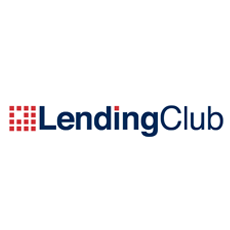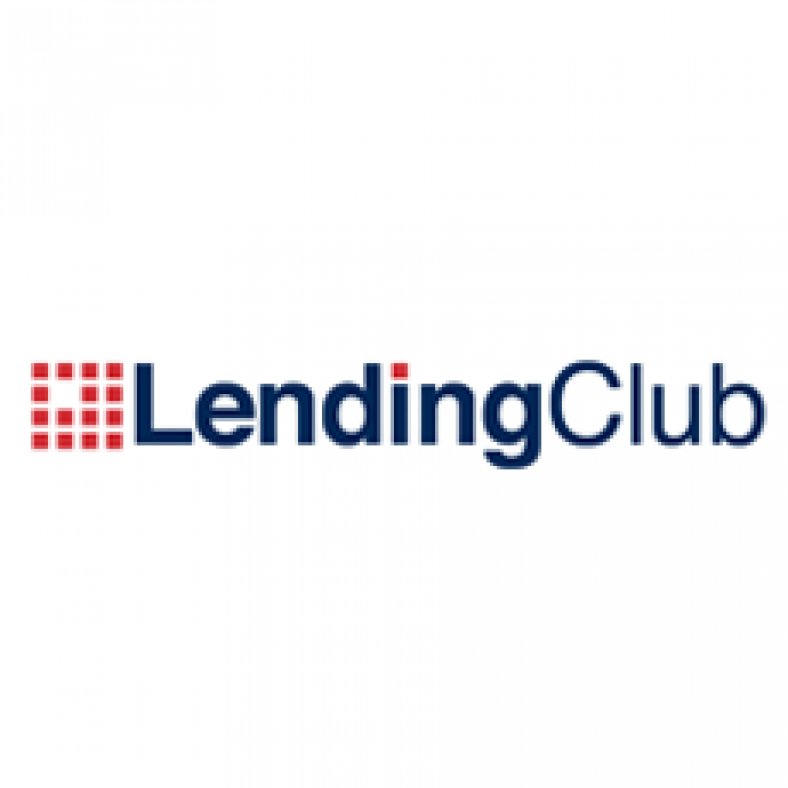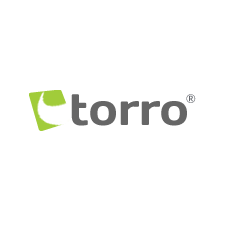Overview
Matter is the SBA tends to be very picky when it comes to offering financial help to small businesses. They have a very stringent vetting process, and very few applicants meet their criteria. And even among those lucky minority who do qualify for an SBA loan, the process from application to information gathering to funding can be quite onerous. Even business owners with exception credit find that SBA loans take too long and are not relevant when time is of the essence. LendingClub is among the earliest of peer-to-peer type alternative lenders and was the first of its kind to go public. Established in 2006 in San Francisco, California, the firm initially offered only personal and auto (refinanced) loans. In 2014, it started offering small business loans. Since the company’s inception, it has made over $28 billion in loans, and has built itself a name as a leader in the alternative lending space. The LendingClub website expressly states that they can help borrowers with only “fair” credit. To clarify, that generally means in operation for a minimum of one year, with sales revenue of a minimum of $50,000. Moreover, while they claim that there is no required “minimum” credit score, they prefer that at least one business owner have at least a 620 FICO rating. The lack of this credit score is not an automatic deal breaker, however, as the company will look at the company’s financial situation and projected sales growth. In certain circumstances, the business owner is also required to have at least 20% ownership in the entity.Collateral is only required in cases where the loan(s) total $100,000 or more. In that case, LendingClub will file a UCC-1 lien against the company assets. The $100,000 loan threshold also means that the company owner will have to provide a guaranty of the loan.
- Quick application process
- Very few restrictions on use of funds
- Competitive terms and fees
- Relaxed borrower qualifications
- Past bankruptcies aren’t necessarily an exclusion from funding
- LendingClub can offer a co-sign option for some borrowers.
- Businesses can have more than one loan with LendingClub.
- Monthly repayment options
- LendingClub may allow for a “hardship” plan
- Credit bureau reporting helps borrowers improve their credit scores
- Can work with a borrower which has a lien against assets (provided the total of liens is less than $20,000).
- Personal guaranty required for all business loans in above $100,000
- Loans not available for businesses in Iowa, Puerto Rico or Guam
- Certain industries are excluded from funding e.g., adult entertainment, illegal activities, gambling, lending, investing, religious organization, political organizations, etc.
- Startups are not eligible for funding
- No long-term loans
- High origination fees
Services Offered & Types of Funding
LendingClub currently offers only installment or term loans for small businesses. However, they stress that while they do not provide funding for startups, they would recommend that the owner consider applying for a personal loan from them, in which case the funds could be used at the borrower’s discretion, including for related business purposes.
The company can provide a business installment loan for as little as $5,000 to a maximum loan of $300,000, with installment repayment terms which range from one to five years (repaid monthly). The borrower can use the funds for most needs, including relocation, expansion, inventory and equipment, emergencies, marketing, and even consolidation and refinancing of loans from another lender.

| Types of Loans | Minimum Loan Amount |
Maximum Loan Amount |
|---|---|---|
| Amount of Loan | Minimum Loan of $5,000 | Maximum Loan of $300,000 |
| Loan Amount | Minimum of 12 months | Maximum of 60 months |
| Fixed Interest Rate | Varies from 5.99% to 29.99% | |
| Origination Fee: | Varies from 0.99% to 8.99% | |
| Collateral* | UCC-1 filing required on loans above $100,000 | |
| Guaranty* | Required on loans above $100,000 |
Rates and Fees
Repayment of LendingClub installment loans is on a monthly basis, beginning 30 days from the initial loan disbursement. This is a nice offering since many alternative lenders have a daily repayment plan. Another thing we really appreciated is that a borrower is permitted to make additional principal payments on the loan (fee-free) and can pre-pay the loan at any time without being penalized.Repayment can be either via their automated process or by check, though there is a nominal fee associated with check payment processing. To ensure that there are funds in the account before the payment hits, LendingClub will send out a reminder email a few days prior. A failed payment (in other words, a bounced or NSF check) will attract a fee.
On a case-by-case basis, LendingClub may permit those borrowers having difficulty repaying the loan (which is principal plus interest) to make interest only payment for a short time. This hardship plan is intended to get the borrower back on his proverbial feet.
Borrower Qualifications
LendingClub will only provide funding to businesses that have been open for a minimum of one year. It will not fund startups. Interestingly, during this LendingClub review, we discovered that most of LendingClub’s borrowers have an established credit history of more than fifteen years. LendingClub states that the borrower’s annual sales revenue should be a minimum of $50,000. The small business owner is expected to have at least a 20% ownership in the entity. A borrower may be required to provide a guaranty if the loan amount exceeds $100,000.
While no credit score minimum is required for a borrower, per se, LendingClub’s underwriters would prefer to see a minimum credit score of 620. Still, they will work with the borrower whose credit score falls short of that. LendingClub stresses that it is the overall financial health of the entity which will ultimately be the deciding factor as to whether or not the loan is approved. Likewise, the company’s overall financial health will determine the rate and/or terms it will be offered. Naturally, a borrower with an exceptional credit history will be a better candidate for preferential rates and terms.
One thing that we truly appreciated during this LendingClub review is that the company is one of the few alternative lenders which has a co-sign option for borrower’s with less than a stellar credit history.Decided on an individualized basis, LendingClub may permit two borrowers to co-sign the loan, provided that one borrower has at least a credit score of at least 620 and the other has a score of at least 540. In the case of co-signers, the combined debt-to-income ratio must be less than 35%.
Borrowers will be permitted to have up to three different loan products with them as a combination of small business loans and personal loans. If approved, one borrower will be permitted to borrow up to $300,000 for small business loans and another $50,000 with a personal loan.
Application Process
The process to obtaining a loan from LendingClub begins with an online questionnaire detailing your needs. Generally, they want to know about you, your company and your company’s finances. Then, their automated process will analyze the data you self-provided and assess the company’s risk. At this pre-qualification stage, LendingClub will soft pull your credit history, which would have no impact on your score. At the end of this stage, you will get a quote from LendingClub which details the terms of their offer: i.e. the amount up to which you can borrow, the term length available to you, the possible rates you will be charged, and the fees for originating the loan.
From here, the ball is in your court as to whether or not you wish to proceed based on LendingClub’s initial offer and terms. If you decide to move forward into the process, you will let LendingClub know. It should be understood from the start that your acceptance of their initial offering is not a commitment on their part to lend to you. LendingClub will still need to verify all of the information you provided; to that end, LendingClub will send a to-do list for your completion and will also complete a hard pull of your credit history.
At a minimum, you will need to provide the following documents:
-
- Proof of identity (your own and your company’s)
- Bank statements for the last three months
- Federal income tax returns for your business for the last filing year
- Completed and signed IRS Form #4506-T (this is a request for a transcript copy of your federal tax returns so that they can verify that the information you self-reported is accurate)
After all of the required documents have been provided, an underwriter will review and analyze the data and make a final decision on your application. If you’ve approved LendingClub’s offer and the underwriter confirms your eligibility, the funds will be disbursed to the checking account you provided to them. At this time, the origination fee is deducted from the initial disbursement, so borrowers who need a specific amount of funding should bear consider requesting additional funds to cover the origination fee.
The process, from beginning application to funding, can take up to two weeks though the average is about one week. If there are any discrepancies in the documentation or if the underwriter has additional questions, that can further delay the processing time.
Help & Support
A dedicated account manager who is based in the United States is assigned to each borrower. Account managers are available via e-mail or by phone for specific questions about an account; although they do not offer 24/7 customer service, their response time has been highly commended by past and current borrowers. For more general questions, a quick response can be obtained via Facebook or Twitter. LendingClub’s FAQ page on their website is also very helpful in answering the most basic of questions regarding LendingClub’s services.
The LendingClub blog can also be a great source of information of a more generalized nature, including personal finance, debt consolidation, investing and improving one’s financial health.
User Reviews
LendingClub is a BBB accredited company. The company has received dozens of positive reviews, most of which reflect a fast turnaround time on the application, a streamlined application process and helpful client representatives.
The Better Business Bureau reports that the majority of complaints about the company’s small business loan products are generally in regard to the high origination fees. This is unfortunate, but in our opinion, not a reason to exclude this lender as a valid funding option, especially since it offers so many other advantages. Another often seen complaint is a “misunderstanding” on the part of the borrower who assumed incorrectly that the fact that they were pre-approved meant that the loan was a “done deal.” The good news is that anyone who has thoroughly read this LendingClub review will understand exactly what pre-approval means, and will not have this misunderstanding. LendingClub stresses that a pre-approval is based on self-reported information and that the actual documentation review process may warrant the denial of the application.
Final Thoughts
In the peer-to-peer alternative lending space, LendingClub is one of the more established options, having been in the business since 2006. What began with consumer loans and refinanced auto loans grew to prominence in the small business loan arena. Though the company doesn’t have a whole host of funding options, most small business owners can still have their needs catered to with the installment loan offerings, especially since LendingClub does not put many restrictions on the use of funds. While LendingClub only works with established small businesses with fair to good credit, they provide a workaround to their “no startup” limitation. LendingClub recommends that a newly established small business owner could consider a personal loan to meet startup expenses.
While interest rates and origination fees at LendingClub may never be as competitive as the fees required for SBA loans, for the borrower who doesn’t meet the SBA criteria, LendingClub offers a very acceptable alternative funding option. Fixed interest rates on the term loan and the variable origination fees charged that are based on the borrower’s creditworthiness enable LendingClub to offer competitive repayment terms to those who qualify. A monthly repayment as opposed to daily repayments also give LendingClub an edge over other lenders.
Finally, it should be noted that, with timely repayments of the loan, a small business owner can improve his or her company’s credit profile since LendingClub reports to the major credit ranking agencies. The bottom line is LendingClub should be among those alternative lenders that you should strongly consider.







